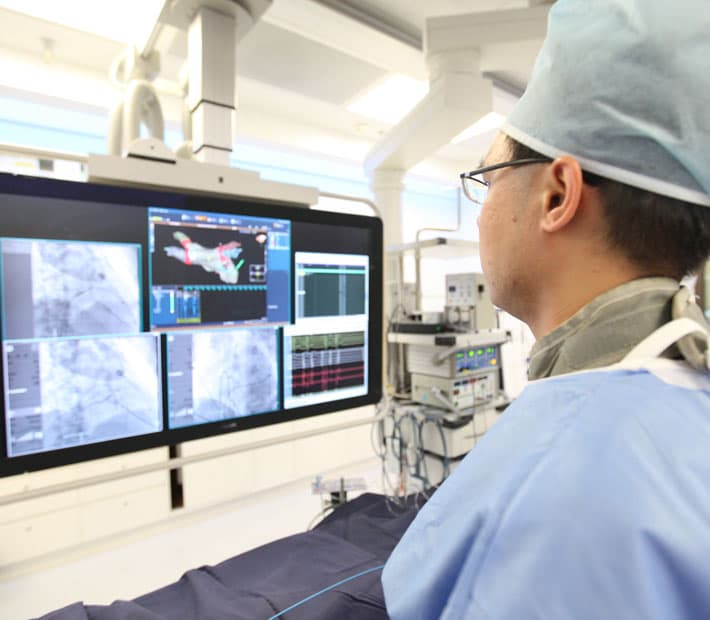EP STUDY AND CATHETER ABLATION
Some types of heart rhythm disorders (arrhythmias) cannot be treated adequately with medication, in which case an electrophysiological (EP) study and catheter ablation procedure may be required. This is a minimally invasive procedure (similar to keyhole surgery) in which the cardiologist inserts thin flexible wires (called catheters) a blood vessel in the leg into the heart. Electrical stimulation of the heart through the carefully placed catheters usually allows the exact arrhythmia to be diagnosed. High-frequency electrical energy can then be delivered by the cardiologist through one of the catheters during ablation to a small area of tissue inside the heart to destroy the part that is causing the arrhythmia. Catheter ablation can be curative for some types of arrhythmias and avoid the need for lifelong medication.
The procedure can range from under one hour to more than four hours depending on the type and complexity of the arrhythmia and is usually performed using light sedation. A special 3-dimensional mapping system is often used by the cardiologist for the treatment of complex heart rhythm disorders (such as atrial fibrillation and ventricular tachycardia) as this provides more information on the anatomy and electrical activity of the heart.
